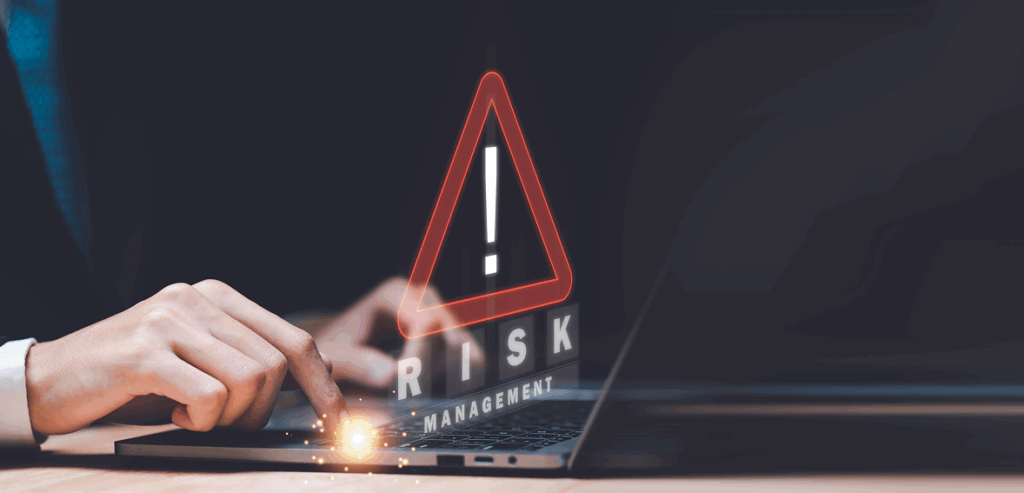
By Sharon Santos July 15, 2025
For med spas, choosing a payment processor is not just a back-office decision. It affects client experience, revenue consistency, compliance, and profitability. Many businesses unknowingly opt for generic payment solutions that look affordable on the surface but lead to unexpected expenses and inefficiencies over time.
From obscure transaction fees to lost time on reconciliation and compliance challenges, these hidden costs can quietly erode margins. Med spas have specialized operational needs, and using non-specialized providers often results in mismatches that are costly in the long run.
The Temptation of Low Rates
Many generic payment processors advertise low swipe rates or flat transaction fees. While this sounds like a win for med spas processing high-ticket services, there is more than meets the eye.
Introductory Rates That Don’t Last
Generic providers often use introductory rates as bait to bring in businesses. These rates may only apply for a few months or for certain types of cards. Once the promotional period ends, rates quietly increase. Med spas operating on seasonal schedules or growing in volume may suddenly find themselves paying more without warning.
Pricing Based on Card Type
Not all card transactions cost the same to process. Business cards, rewards cards, and foreign-issued cards often carry higher interchange fees. Many generic processors pass these costs directly to the med spa without clear explanation. What begins as a 2.5 percent rate can creep toward 3 or even 4 percent depending on the payment mix.
Flat Fees That Add Up
Aside from transaction percentages, generic processors charge a range of fixed monthly and per-use fees that are often buried in the contract. These may seem minor individually but can accumulate over time and hurt profitability.
Monthly Platform Fees
Most payment platforms charge monthly fees for access to their software. With generic providers, med spas might be paying for tools they don’t use. For example, restaurant-specific features or retail-focused reporting tools are irrelevant to a clinical environment yet are bundled into the base price.
PCI Compliance Fees
Maintaining merchant gateway security is a requirement, but some providers charge monthly or annual PCI compliance fees simply to monitor your account. If a med spa is already operating securely or using a separate solution to maintain compliance, this charge is redundant.

Integration Costs and Workflow Gaps
Generic payment systems rarely integrate seamlessly with med spa software like EMRs, appointment schedulers, or client record tools. This lack of synchronization leads to inefficiencies and additional costs, often hidden in daily operations.
Manual Entry and Double Work
Without direct integration, front desk staff must manually enter client information into the payment system. This not only wastes time but increases the risk of human error. Incorrect billing, duplicate records, or mismatched treatment charges all create friction and can damage the client experience.
Paying for Add-Ons
Many providers offer basic functionality but charge extra for features like recurring billing, automated reminders, or online checkout links. Med spas that need these tools may find themselves stacking on costs with each additional feature, even though these should be standard in a medical-aesthetic environment.
Chargeback Vulnerabilities
Chargebacks occur when clients dispute a transaction. In a med spa, where services are often subjective or based on personal outcomes, disputes are more common. Generic systems offer limited protection in these scenarios, which can lead to lost revenue and reputation damage.
Lack of Detailed Records
Med spas need documentation to defend against chargebacks, such as time-stamped treatment records, staff notes, or client acknowledgments. Generic platforms are rarely equipped to link this data to payment logs. Without integrated reporting, business owners may lose disputes simply due to lack of access to supporting documents.
Dispute Fees and Reserve Holds
Each chargeback typically comes with a non-refundable fee. In high-dispute industries, processors may also place reserve holds on a portion of incoming revenue. This means part of your daily income is held back to cover potential disputes, limiting your cash flow. Generic providers are more likely to impose such holds if they lack specialized knowledge of how med spas operate.
Inflexible Recurring Payment Options
Many med spas offer monthly memberships, treatment packages, or loyalty plans. Generic systems struggle with this complexity. Their limited recurring billing setups can result in missed payments, confusion, or customer dissatisfaction.
No Proration or Flexibility
If a client wants to change their plan mid-cycle or pause a membership for a medical reason, a med spa must accommodate that while maintaining billing consistency. Most generic tools lack the ability to prorate charges or adjust subscriptions easily. Staff must manually override the system or track adjustments elsewhere, creating administrative chaos.
Poor Payment Recovery Tools
When a card expires or fails during a recurring payment, the system should notify both the client and the staff. Industry-specific systems do this well. Generic ones often lack automated recovery tools, leaving failed payments unnoticed and resulting in lost revenue.

Security Risks and Reputation Damage
Security lapses are not just a financial issue. For med spas handling personal and medical data, they can also impact reputation. Generic systems often meet only the bare minimum PCI standards, without offering robust secure payment processing features tailored to healthcare settings.
Inadequate Tokenization
Tokenization replaces card details with encrypted identifiers. This is essential for storing card information securely. Not all generic processors use strong tokenization, and some may even store data in ways that increase breach risk. For a med spa, this can lead to compliance violations or client distrust.
No HIPAA Alignment
While HIPAA may not apply to all med spas, those that store treatment records, photos, or medical intake forms alongside payment data should ensure alignment with privacy standards. Most general systems do not address these needs, potentially exposing the business to legal or reputational harm.
Lack of Support for Tipping and Staff Tracking
Med spas operate with varied service providers including RNs, estheticians, and technicians. Tipping norms vary by role and client preference. Generic systems either apply tips uniformly or not at all, leaving med spas without the customization needed to manage staff incentives effectively.
No Role-Specific Tipping Prompts
Tipping may be appropriate for facials but not for injectables. A tailored system allows for tipping options based on service type. Without this, med spas either miss out on tips or put clients in awkward positions with irrelevant tipping prompts.
Limited Staff Reporting
Staff commission structures are complex. Some are paid hourly, some per treatment, and others receive a cut of upsells or packages. Generic systems rarely track staff performance or tie payments to services rendered. This forces med spas to manage incentives manually, consuming time and creating discrepancies.
Difficulty Scaling Across Locations
A med spa looking to expand across cities or even open a second branch needs a system that grows with them. Generic payment processors often fall short when businesses try to scale, adding more cost and complexity.
Separate Accounts per Location
Many general providers treat each location as a separate merchant account. This creates challenges in reporting, revenue tracking, and user permissions. Industry-specific systems offer centralized dashboards with location-level filters, allowing owners to manage the whole business in one place.
User Access Challenges
Different team members need different access. Receptionists should not see the full ledger, while managers need visibility into sales data. Generic systems often provide limited or overly complex access settings, making it difficult to protect data or train staff effectively.
Time Wasted on Reconciliation and Reporting
The hidden cost of inefficiency is often overlooked. Med spas that spend hours every week reconciling payments, refunding deposits, or chasing down mismatched invoices are bleeding operational time that could be better spent on growth or client engagement.
No Integration With Accounting Tools
If your payment system does not sync with accounting software, financial tracking becomes manual. Every refund, sale, or adjustment needs to be re-entered into bookkeeping tools. Over time, this adds up to hundreds of staff hours lost on tasks that could be automated.
Limited Custom Reporting
Med spas want to track revenue by treatment, by provider, and by time period. Generic systems may only provide high-level summaries. Without detailed reports, business owners lack the data they need to make decisions on staffing, pricing, or marketing.

Unclear Terms and Contract Traps
Generic providers often offer seemingly simple month-to-month contracts. But in practice, there are hidden commitments, fees for early termination, and charges for hardware or integrations that were not obvious at sign-up.
Long-Term Commitments Hidden in Fine Print
Some contracts auto-renew annually unless canceled within a specific window. Others tie businesses to minimum volume thresholds, where failing to hit monthly targets results in penalties. Med spa owners may not realize these terms until they attempt to make a change.
Hardware Leasing and Device Fees
Card terminals and mobile readers are often offered for free or at a low price, but come with lease agreements or monthly service charges. This creates a situation where switching providers becomes costly even if the system is underperforming.
Conclusion
Generic payment processors often appear to be budget-friendly, but they carry a host of hidden costs that can chip away at a med spa’s profits and efficiency. Whether it is through opaque pricing, operational delays, or compliance vulnerabilities, these platforms can limit growth and increase risk.
Med spas need systems designed for their unique blend of clinical care, client-facing services, and regulatory needs. From avoiding excess PCI fees to ensuring seamless recurring billing and protecting against disputes, the right secure payment processing solution is an investment in the long-term success of the business.
As the med spa industry grows and clients become more tech-savvy and privacy-aware, using a platform built for general use is no longer enough. Choosing a system designed specifically for medical-aesthetic practices not only eliminates hidden fees but also brings peace of mind, smoother operations, and a better overall experience for staff and clients alike.
FAQs
Why do generic payment processors cost more in the long run?
While they may offer lower upfront fees, generic processors often include hidden costs like compliance charges, add-on features, and higher rates for certain card types. Med spas may also lose time and revenue due to poor integration and limited automation.
How do hidden fees appear in payment processing?
Hidden fees can include monthly account fees, chargeback fees, PCI compliance surcharges, and unexpected increases in transaction rates. These are usually outlined in fine print or apply only after a promotional period ends.
Can med spas negotiate better rates with specialized systems?
Yes, many merchant gateway security providers that cater to med spas offer customized plans that bundle essential features without charging extra for each tool. These platforms understand med spa workflows and offer more value for the price paid.